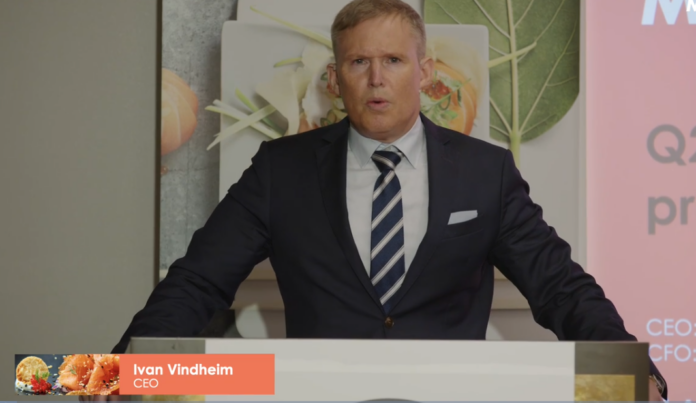The world’s largest salmon farming company is reconsidering doing business in BC.
MOWI published its second-quarter report today. During a webcast for investors this morning CEO Ivan Vindheim said the federal government’s plan to phase out net-pen farms in BC within five years has prompted an internal review.
“It looks like emotion and political agendas have taken over facts and science in this case, which is of course, really, really, sad,” he said during the webcast. “So we have therefore decided to undertake a strategic review of this region, where we keep all possibilities open.”
The federal government has promised for years to release a transition plan for the BC industry, to help farms move to land or closed-containment systems, but nothing has been released. On June 20 this year the federal government announced that all salmon farms in BC must be on land or in closed-containment systems by June 30, 2029. A draft plan was expected this month but the government missed its own deadline, with the plan now expected in September.
“We are disappointed with the decision since traditional since traditional marine salmon farming is absolutely sustainable, thus the basis for the decision lacks scientific merit,” says the second quarter report.
The company’s farms on Canadas’ east coast will not be affected.
MOWI’s second-quarter results show that total harvest volumes in North America decreased by 6% compared with last year, largely due to issues with algae blooms in BC causing mortalities and reducing the ability to feed fish, impacting harvest times and volumes. The report says production at MOWI’s east coast Canadian farms “continued to be stable and supportive of future growth.”
Salmon farming companies in BC have lost roughly half their production capacity since 2018. All remaining farms operate in partnership with local First Nations.






